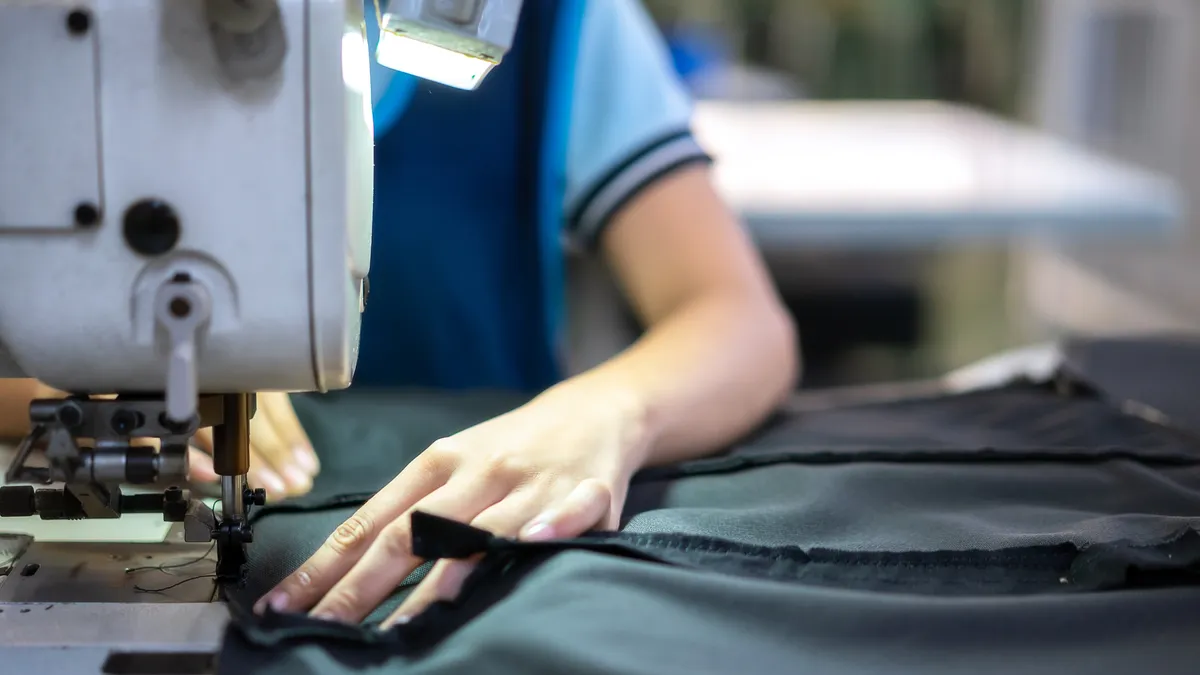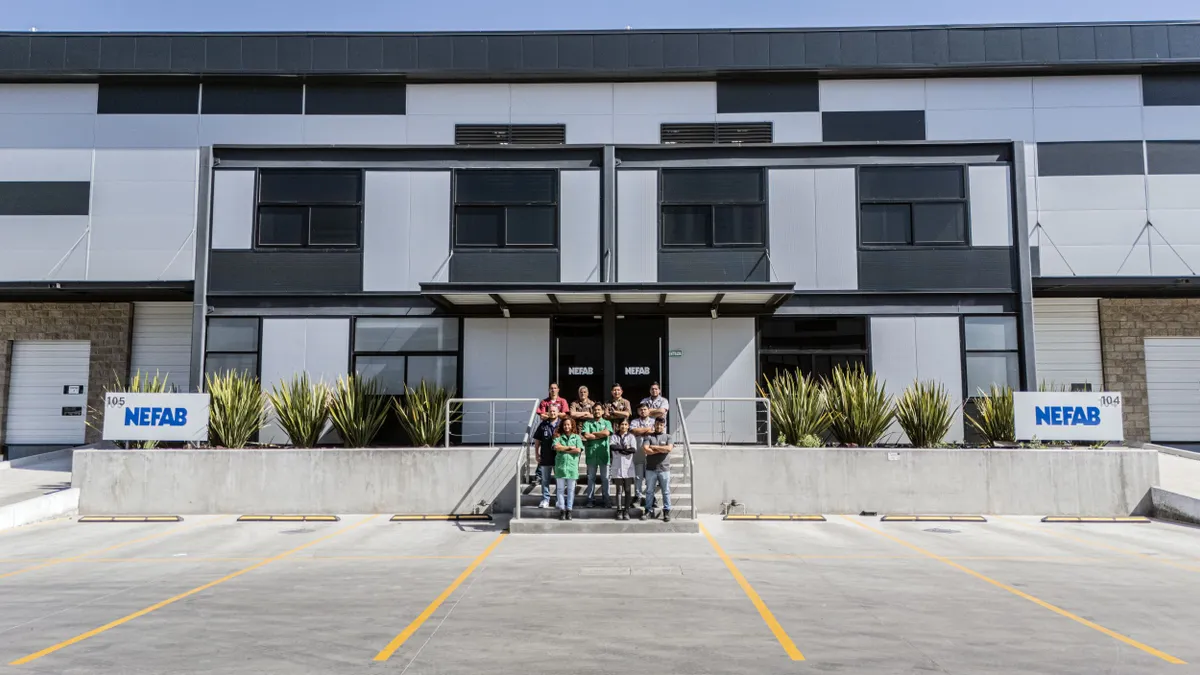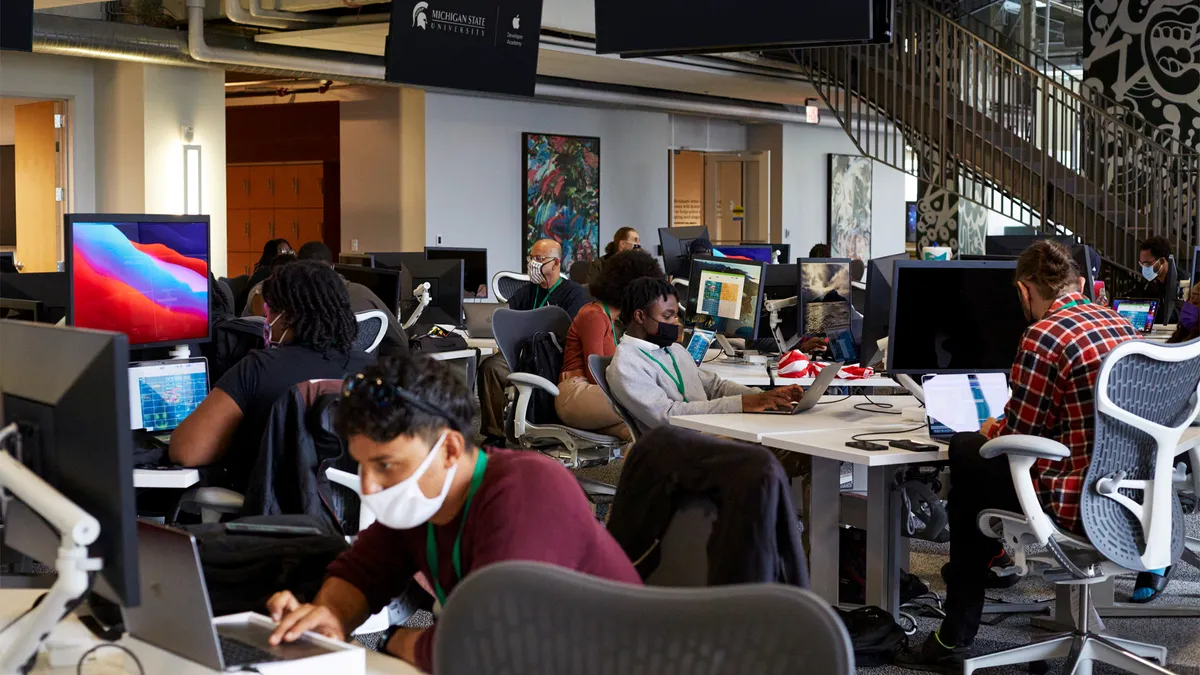A new Department of Labor survey of Southern California garment contract manufacturers found that 80% of those investigated violated federal labor laws in at least one instance.
More than 50 contractors and manufacturers were investigated as part of the survey, including companies who produce items for Bombshell Sportswear, Dillard’s, Lulus, Neiman Marcus, Nordstrom, Socialite, Stitch Fix and Von Maur.
The findings come from the department's 2022 Southern California Garment Worker Survey, led by its Wage and Hour Division, which works to enforce compliance with child labor, minimum wage, overtime pay and other labor laws.
Over half of the investigations found employers illegally paid workers part or all of their wages off the books, falsified records or could not provide them.
Nearly a third of those surveyed were found to illegally pay workers a piece-rate wage, a practice banned by California in January 2022. Piece-rate wages are those paid to workers based on the number of items produced on the job.
In one case, workers were paid as little as $1.58 an hour through piece-rate wages, according to the survey. Federal minimum wage is $7.25 an hour; California minimum wage is $15.50 an hour.
The department decided to go back into the field to investigate companies' labor practices as part of a survey after seeing a rise in non-compliance in recent years, Wage and Hour Regional Administrator Ruben Rosalez told Manufacturing Dive.
Noncompliance rose in particular as many garment employees remained onsite during the early days of the pandemic, acting as essential workers to manufacture PPE and other equipment, but without as much federal oversight from labor investigators, Rosalez said.
"A lot of the underground economy got bigger," he said. "We saw that instead of having a shop full of 25 people, a lot of our cases had shops with three or four people, but yet doing the same work of 25 people."
As part of the survey, DOL conducted an analysis on the sewing fees paid by manufacturers to contract companies. The analysis found that on average, manufacturers paid their contractors $2.75 below what would be needed per garment for those companies to pay their workers required minimum wages.
Rosalez noted that many of the noncompliance issues stem from the multi-tiered textile supply chains that make enforcement and oversight difficult, from the retailers setting product prices down to manufacturers and their contractors.
"Those analyses again confirm that some of the prices set by the retailer on down are not enough to stay in compliance," Rosalez said. "Because what we used to get from the contractors, which we've gotten over the last several years, is 'It's not me I want to comply. It's the manufacturer.' We go talk to the manufacturer, they go 'It's not me, I want to comply, it's the retailer.'"
Nordstrom confirmed that once it was made aware that one of its suppliers was violating labor laws, it took steps to remedy the issue.
"Nordstrom is committed to supporting the health, safety and human rights of everyone in our value chain, and we expect all Nordstrom suppliers to adhere to the standards outlined in our Partner Code of Conduct in addition to applicable laws and regulations," a spokesperson said in a statement.
No other listed retailers replied to a request for comment from Manufacturing Dive.
The Department of Labor has the authority to prevent the interstate shipment of “hot goods” produced in violation of minimum wage, overtime or child labor provisions under the Fair Labor Standards Act, though Rosalez noted it did not do so during the recent investigations given companies' cooperation.
The department can also issue civil money penalties for companies that willfully or repeatedly violate labor standards.
Moving forward, Rosalez said the department is focused on ensuring that companies comply with federal wage laws, including pricing items and manufacturing fees high enough to pay workers, and ensuring all workers are on a company's official payroll.
As part of the compliance effort, he said he wants to bring together major retailers to discuss how to enhance oversight and regulatory enforcement on contract manufacturers. Rosalez also wants to highlight companies that are in compliance and use them as models for the industry.
"They're paying higher wages. They're charging more all the way up the supply chain line," he said. "So it's one of those phenomenons that you see, if they embrace compliance, they gotta embrace it all the way up.”




















